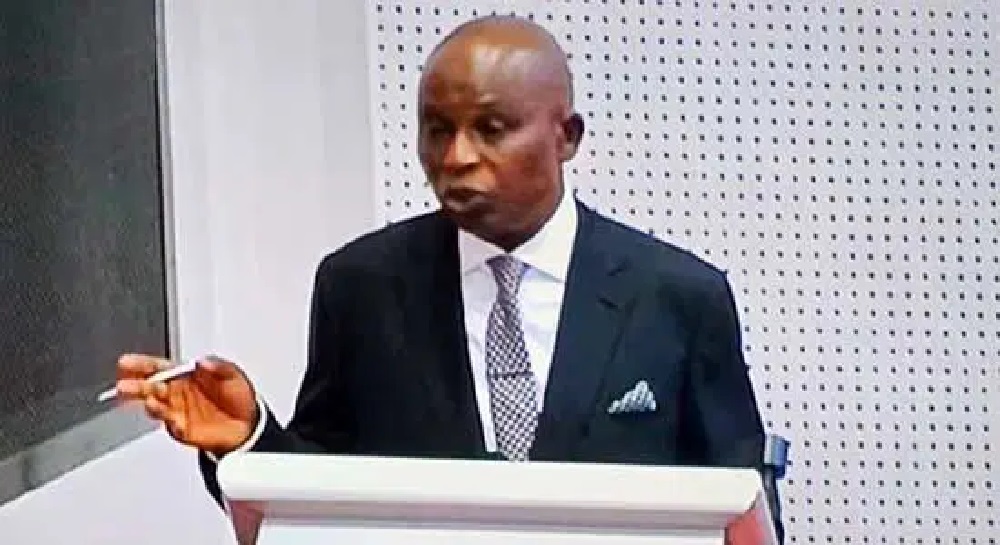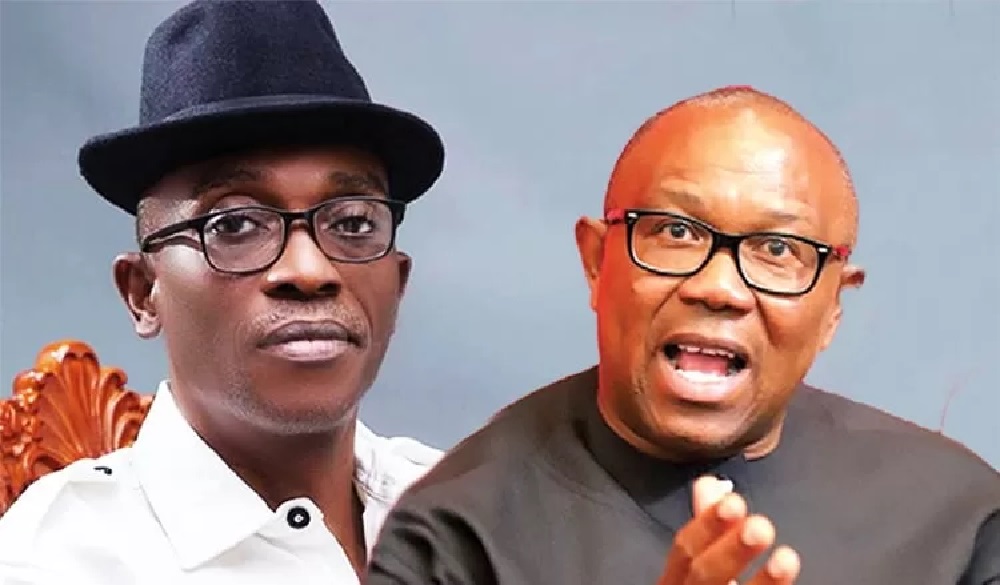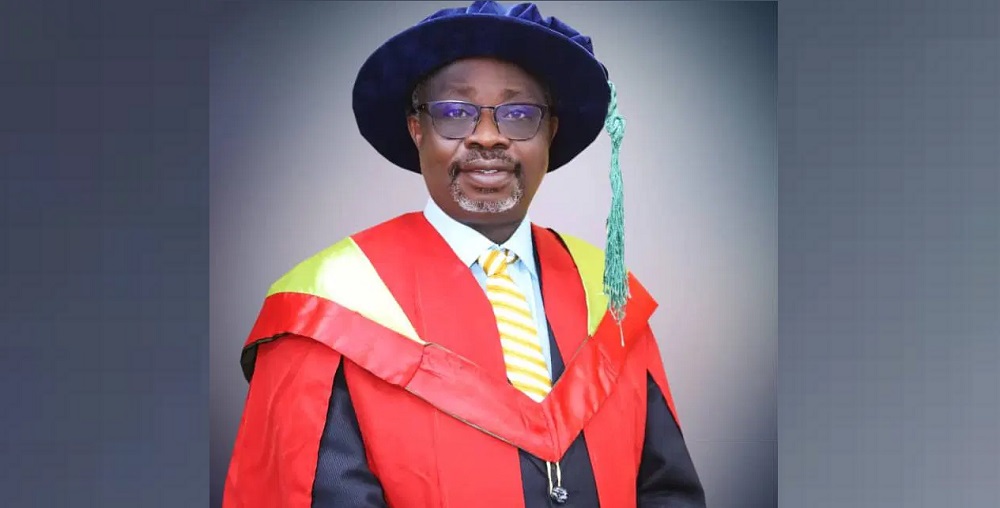News
AGF moves to block presidential pardon for corrupt leaders

The Attorney-General of the Federation (AGF) and Minister of Justice, Lateef Fagbemi (SAN), has proposed a constitutional amendment to block presidential pardons for corrupt leaders, aiming to strengthen the fight against corruption.
The proposal, made at a one-day roundtable organized by the Independent Corrupt Practices and Other Related Offences Commission (ICPC) in Abuja on Monday, seeks to exclude corruption cases from the prerogative of mercy.
The ICPC event, themed ‘Building a Unified Front Against Corruption in Nigeria,’ brought together State Attorneys-General, Commissioners for Justice from all 36 states, and representatives from civil society organizations, the private sector, and other stakeholders to enhance collaboration and strengthen anti-corruption efforts. The roundtable was supported by the MacArthur Foundation.
According to the Minister of Justice, the proposed amendment will be pursued in the next constitutional review to ensure that corrupt leaders face the full weight of the law.
The AGF stated that the proposal would be a significant step toward addressing corruption in Nigeria, a major concern for citizens and the international community.
Several high-profile individuals convicted of corruption in Nigeria have previously received presidential pardons.
Notable examples include the former Governor of Bayelsa State, Diepreye Alamieyeseigha, pardoned by President Goodluck Jonathan in 2013, and the former Governor of Delta State, James Ibori, who received a pardon in 2015.
The AGF said, “I have always believed that no one can claim to know everything, and it is through collaboration with others that we achieve the best results. United we stand, divided we fall. In the fight against corruption, everyone is a stakeholder. Believe me, everyone is involved.
“In fighting corruption, we need to focus on the facts, not on where someone is from or their religion. If someone is accused of embezzling money, the focus should be on the facts of the case.
“I suggest that in our next constitutional amendment, matters of corruption should be excluded from the prerogative of mercy. This is the only way we can progress.
“We want to return to an era where showing your passport and mentioning your profession automatically earns you respect. When we travel outside the country, and you reach immigration or border stations, they first ask you, ‘What work do you do?’ Sometimes you feel like hiding your passport, but you have to show it.
“Let us return to this approach when dealing with corruption. We should also avoid the trend of public sentiment influencing actions, especially in Nigeria, where political polarization is rampant. Investigations should be thorough, and charges should be clear and concise.”
Chairman of the Senate Committee on Anti-Corruption and Financial Crimes, Senator Osinakachukwu Ideozu, lauded the proposal, noting that corruption undermines institutions and stifles development. He reiterated the Senate’s commitment to supporting anti-corruption initiatives.
Ideozu stated, “Corruption is not just a legal challenge; it is a social cancer that erodes trust, undermines institutions, and stifles development. It is a problem that requires a comprehensive and multifaceted approach, involving every segment of our society.
“As State Attorneys-General, you hold significant responsibilities in the administration of justice at the state level, and your role in this fight cannot be overstated.
“We must ensure that our justice system operates with the highest level of integrity, where the rule of law is upheld, and where there is no place for corruption to take root. Prevention is always better than cure.”
ICPC Chairman, Dr. Musa Adamu Aliyu (SAN), emphasized the importance of collaboration between the ICPC and State Attorneys-General in preventing corruption and promoting good governance.
He explained that the ICPC has been working to strengthen its anti-corruption efforts through preventive measures and enforcement.
Specifically, Aliyu said that the National Anti-Corruption Strategy (NACS) will be enhanced through collaboration.
He stated, “Corruption is a complex problem that has permeated all aspects of life and suppressed development in Nigeria. Both Federal and State institutions are stunted because of multiple harmful practices, greed, and impunity.
“Reaching institutions at the State level requires the involvement of State officials. It demands expertise, collaboration, informed strategies, and knowledge sharing. Knowledge and expertise are not based in one place and are not easily acquired without a determined and focused pursuit, with adequate resources.
“This collaboration with the Attorney General can lead to more effective preventive strategies, enhanced inter-agency cooperation, and a more corruption-resistant public sector. We can also win the confidence of the public in government institutions and the criminal justice system in particular.”
Chairman of the House Committee on Anti-Corruption, Rt. Hon. Kayode Moshood Akiolu, assured the ICPC of legislative backing, stating that the House of Representatives is committed to playing its legislative role in ensuring the federal government’s success in the anti-corruption fight.
Akiolu said, “At a period in our national life when the economy is struggling, citizens are grappling with existential issues, and the government needs all the resources it can get to execute developmental projects and pull our country out of the woods.
“The need to rein in corruption and plug revenue leakages has never been greater. To the uninitiated, it might seem like the government does a lot of talking. But the truth is that corruption is a complex phenomenon to contend with.
“Corruption is a national problem; it is not a federal problem. All hands need to be on deck to help steer the ship of state from corruption-infested waters and onto safe waters where national development can thrive.”
Keynote speaker, Chief Kanu Agabi (SAN), emphasized the need for a unified front against corruption, while Chairman of the Senate Committee on Anti-Corruption and Financial Crimes reiterated the Senate’s commitment to supporting anti-corruption initiatives.
According to him, this development will boost the federal government’s anti-corruption drive and promote accountability among public officials.
A panel discussion, moderated by former Lagos State Attorney-General, Moyosore Onigbanjo (SAN), featured experts including Mr. Ekpo Nta, former Chairman of ICPC, Prof. Mohammed Tabiu (SAN), Prof. Abdulkarim Kana (SAN) (Designate), and Barr. Hauwa Abubakar, Attorney-General of Borno State.
The discussion identified key challenges and opportunities for enhancing anti-corruption efforts, including addressing corruption-inducing social norms, promoting public education and awareness, and strengthening institutional frameworks.
News
LP Crisis: Nobody Unseated You, The Constitution Did, Sheathe Your Sword — Obi Tells Abure

Peter Obi, the presidential candidate of the Labour Party in the 2023 elections has asked the party’s former Chairman, Julius Abure, to sheath his sword.
He urged him and others to join hands with the National Caretaker Committee to rebuild the party.
Obi, who was represented by Datti Baba-Ahmed, stated this at the inaugural meeting of the caretaker committee of the party held in Abuja on Tuesday night.
He stated categorically that nobody but the constitution of the party unseated former chairman Abure after the expiration of his tenure.
Obi said: “Listen, my friend, no governor unseated Abure, the constitution unseated him. Abure’s time elapsed. Nobody unseated him. As of today, Abure is our good friend and a loyal member. We want him back in the fold; we have roles for him to play.
“We didn’t have crisis. We managed a transition that was a bit bumpy and that was it. I tell you, no other political party of our size could do that in the time and manner that we did.
“We are a political party who went all the way to the Supreme Court claiming our 10 million votes. They were only able to give us six million votes. So we are a force to contend with in Africa. What we’ve done has never been done before. When PDP came, they had the military. We had nothing.”
Obi noted that the opposition party was ready to repeat and surpass the feat recorded during the 2023 elections in 2027 by producing a majority in the National Assembly and winning the presidential seat in 2027.
Earlier, the chairman of the Labour Party National Caretaker Committee, Senator Nenadi Usman, assured party members of the committee’s determination to rescue the party from the current challenges and restore and rebuild it as a veritable alternative platform for Nigerians.
She assured of the committee’s readiness to lead the party on the path of reconciliation within the short time of its assignment.
Usman stated: “We are on a rescue mission, not just for the Labour Party, but I tell you for our dear nation, Nigeria. The interest this committee has generated extends beyond party lines.
“The number of telephone calls I have received not just from Labour Party members, but people from other political parties who told me that if we get this thing right, we will walk together. So we have a huge task.
“Our party, by the grace of Almighty God, will become a platform for all disenfranchised and unhappy Nigerians. People who are not happy with the way things are going, we are going to be the platform for them by the grace of God. Therefore, we must view this as a significant national assignment.”
News
Nigerian varsities working in shadows of death – Omole

The Pro-chancellor and Chairman of the Governing Council, Ladoke Akintola University of Technology (LAUTECH), Ogbomoso, Professor Ayodeji Omole on Thursday said that the Nigerian University is under siege and currently “working in the shadows of death”.
He maintained that the university system has been captured and held hostage by many government policies especially since the advent of the so called ‘civil rule’.
Professor Omole made these assertions while delivering the 561 inaugural lecture of the university of Ibadan, entitled “working in the shadows of death”.
A former ASUU chairman, Professor Omole stated unless something urgent is done to stop government attacks on the Nigeria’s educational system, the system will die faster than anticipated
“More than ever before, the Nigeria University system is under siege and therefore ‘Working in the shadows of death. If nothing drastic is done to stop the various attacks from government and its agencies, the system will die faster than anticipated. The University system is captured and has been held hostage by many government policies, especially since the advent of the so called ‘civil rule’”.
He took a swipe at various civilian administrations who he said foisted anti-intellectual policies on the education system in the country.
According to the Professor of Forest Engineering, “Treasury Single Account (TSA) and Integrated Personnel and Payroll Information System (IPPIS). IPPIS is a mismatch with university work structure. It is incompatible with the academic calendar, and a clear violation of the University Act.
Therefore, it is illegal. Only in Nigeria is the data-base of scholars surrendered to foreign agencies in the name of cutting cost. The effects of which are threatening the very existence of the University system in Nigeria today, because it is now impossible for Universities to recruit even cleaners.”
According to the University don, “the proposed imposition of Core Curriculum Minimum Academic Standard (CCMAS) by the National Universities Commission (NUC) is another policy that will kill Nigerian Universities, faster than expected”.
While expressing sadness that the university of ibadan senate also caved in from its stance on the CCMAS introduction, Professor Omole lamented that the rigid standardization will definitely limit universities’ ability to innovate and design programmes to meet societal needs; because local content and flavour are ignored.
As a former ASUU Chairman at the University of Ibadan, Omole who appreciated the efforts of the Academic Staff Union of Universities (ASUU) and its quest for enhancing qualitative public education for children of the masses in Nigeria noted that “every financial gain the university system has been able to make is as a result of the struggles of ASUU”
He challenged Nigerian academic to “criticize policies that are inimical to national development” saying that “scholars worthy of the description should be vocal in their resistance to foreign exploitation, through the imposition of neo-liberal policies”.
To ensure sustainable development, Professor Omole harped on the need “for government and other stakeholders to ensure fair and adequate compensation for all workers, fostering a motivated workforce that is fully engaged in the pursuit of national progress”.
“Slave wages severely undermine the commitment of workers to national development and have broad, damaging effects on a country’s economic, social, and political fabric. Under-funding in Nigerian universities has led to a range of problems that affect the quality of education, research, and overall institutional performance.
This has manifested in the form of deterioration of infrastructure, poor facilities, brain drain/loss of talent, labour/student unrest, erosion of university autonomy, low morale among staff, decline in global ranking and reputation. These affect productivity, commitment, and willingness to engage in advanced research or innovative teaching methods.
In summary, the under-funding of Nigerian universities is a significant barrier to the advancement of education, research, and national development. Addressing these issues requires increased investment in higher education, better financial management, and strategic policies that prioritize the long-term sustainability and improvement of the university system.
Poor remuneration in Nigerian universities has far-reaching consequences for the future of the university system, affecting its ability to deliver quality education, retain talent, and contribute to national development.”
News
I Can’t Feed My Family Again; I Make N20,000 Daily But Spend N17,000 On Fuel — Taxi Driver Laments

Despite earning N20,000 daily, Ajibaye says he takes home only N3,000 after fuel expenses, leaving him unable to cater to his children and wife.
A commercial driver identified as Wahab Ajibaye based in Ilorin, Kwara State has expressed frustration over the rising fuel prices, saying it has left him struggling to provide for his family.
Despite earning N20,000 daily, Ajibaye says he takes home only N3,000 after fuel expenses, leaving him unable to cater to his children and wife.
He said: “I am buying fuel for N1100 and I make N20,000 (daily) but I take only N3,000 with me to my house (after work). I am the owner of my car but I am no longer making enough to cater to my children and my wife. The All Progressives Congress (APC) government will not end well. Nigeria is becoming worse and we pray God takes away this set of current leaders.”
Ajibaye blamed the ruling APC government for the hardship faced by Nigerians, saying, “Their government is bringing more suffering. They’re not ashamed, despite many Nigerians cursing them. They should rethink.”
The ruling All Progressives Congress (APC) had recently agreed that the policies initiated by President Bola Tinubu resulted in growing economic hardships in Nigeria.
The party in a statement issued by the party’s National Publicity Secretary, Barrister Felix Morka had said this, while responding to a former national vice chairman (North West) of the party, Salihu Mohammed Lukman.
Recall that Lukman had berated the party for bad governance, adding that former President Muhammadu Buhari and incumbent President Bola Ahmed Tinubu have failed to deliver on their campaign promises.
Lukman, therefore, urged opposition leaders to unite and work hard to defeat the APC-led government in 2027.
But reacting, Morka in a statement on Tuesday argued that President Tinubu was taking bold measures to reset the country’s “long broken economy”, explaining that his reforms had increased economic hardship in the country.
-

 News16 hours ago
News16 hours agoSANUSI: Count me out of any plot to dethrone him — Ganduje cries out
-

 News16 hours ago
News16 hours agoHardship! If Your Hubby Still Gives You 3 Square Meals, Shelter In This Economy, He’s a Responsible Man – Aisha Lawal
-

 News18 hours ago
News18 hours agoNLC Alleges Fraud in NNPC, Dangote Refinery Dispute
-

 News24 hours ago
News24 hours agoEFCC officers shoot sporadically in a bid to nab ex-gov Yahaya Bello in Kogi Govt Lodge
-

 News24 hours ago
News24 hours agoFIRS to Introduce e-invoice to Enhance Nigeria’s Tax System
-

 Sports24 hours ago
Sports24 hours agoRising Nigerian Football Star, Hadriel Gets Elite X1 Canada Invitation
-

 News11 hours ago
News11 hours agoBBNaija 9: El-Rufai collected my number, school address but never called – Onyeka reveals
-

 Politics23 hours ago
Politics23 hours agoLP crisis: Abure shuns Edo campaign, accuses Obi, Otti of betrayal








